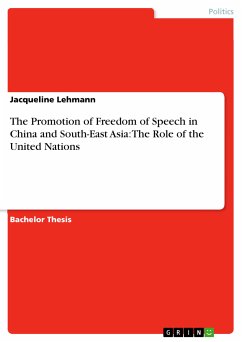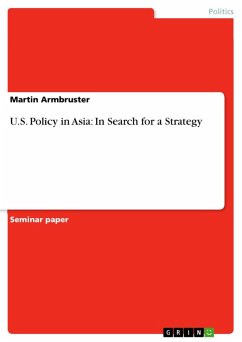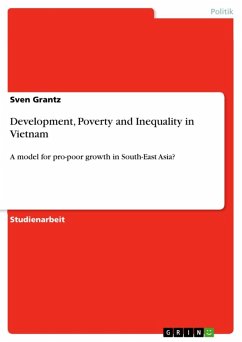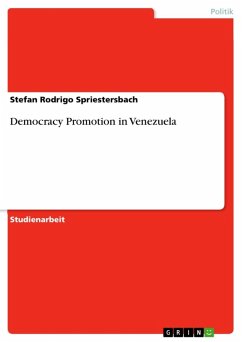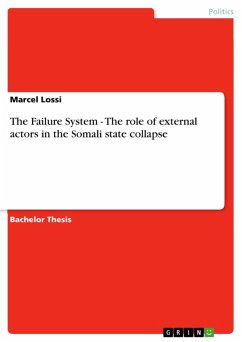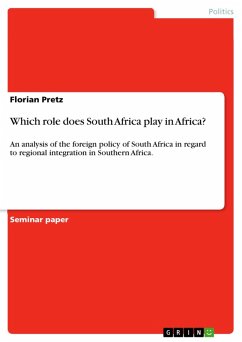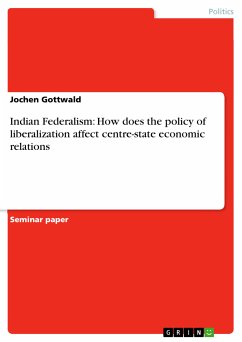Bachelor Thesis from the year 2009 in the subject Politics - International Politics - Region: South Asia, grade: 5,5 (Schweizer System), University of St. Gallen, course: International Affairs , language: English, abstract: Freedom of speech is considered to be a counter stone for democracy and development.This paper aims to contribute to the discussion on the topic of freedom of speech, with a special focus on China and South- East Asia. To approach this topic, first of all, an overview of the topic of human rights will be presented, and an examination of the principle of universality of human rights will be made. Secondly, a closer consideration of freedom of speech will be presented. After this, the United Nations and their relation to human rights will be reviewed and the topic of the universality of the UN human rights system will be analyzed. Furthermore, the most important organs and treaties considering human rights within the United Nations Systemwill be introduced. It is also important to take a look at the current situation of human rights in general and freedom of speech in particular in China and South- East Asia.In the end, two policy recommendations, one concerning South- East Asia and one concerning China, on what the United Nations can do to support and promote freedom of speech in these regions, will be made. These two recommendations will be slightly different for the two regions, mainly due to the position of China within the United Nations. While the recommendation for South- East Asia can be made (almost) within the human rights framework of the United Nations, the recommendation for China has to focus on socalled soft power measures.
Dieser Download kann aus rechtlichen Gründen nur mit Rechnungsadresse in A, B, BG, CY, CZ, D, DK, EW, E, FIN, F, GR, HR, H, IRL, I, LT, L, LR, M, NL, PL, P, R, S, SLO, SK ausgeliefert werden.

